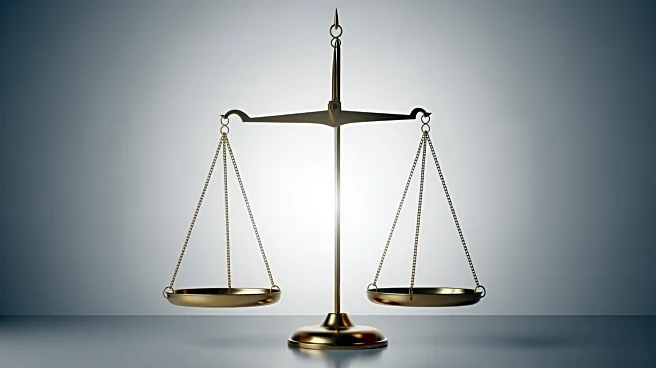What's Happening?
Richard Thaler, a prominent economist and Nobel Prize winner, is featured in a podcast discussing the limitations of traditional economic models that assume rational human behavior. Thaler, known for his
work in behavioral economics, challenges the concept of 'homo economicus,' which depicts humans as perfectly rational and self-interested. He argues that real-world decisions often deviate from these assumptions, as demonstrated in his book 'Nudge' and the updated 'The Winner's Curse.' Thaler's insights have influenced policymakers to consider psychological factors in economic analysis, reshaping how decisions are made in areas like pension savings.
Why It's Important?
Thaler's work in behavioral economics has significant implications for public policy and economic theory. By integrating psychological insights, policymakers can design more effective strategies that align with actual human behavior, rather than relying on outdated models of rationality. This approach has led to reforms in pension savings, where automatic enrollment has increased participation rates. Understanding human behavior in economic contexts can lead to better predictions and outcomes, benefiting industries, governments, and individuals by creating systems that are more attuned to real-world actions and preferences.
What's Next?
The continued exploration of behavioral economics may lead to further changes in economic policies and models. As Thaler's ideas gain traction, there could be increased adoption of strategies that account for human quirks and irrationalities. This shift might influence areas such as taxation, healthcare, and consumer behavior, prompting economists and policymakers to rethink traditional approaches. The dialogue between behavioral and classical economics could foster new theories and applications, potentially transforming how economic challenges are addressed.
Beyond the Headlines
Thaler's work highlights the ethical and cultural dimensions of economic decision-making. By acknowledging the limitations of rational models, economists can better understand the diverse motivations behind human actions. This perspective encourages a more holistic view of economics, considering factors like fairness and social norms. The integration of behavioral insights into economic theory may also lead to long-term shifts in how societies value and prioritize different aspects of economic life.









